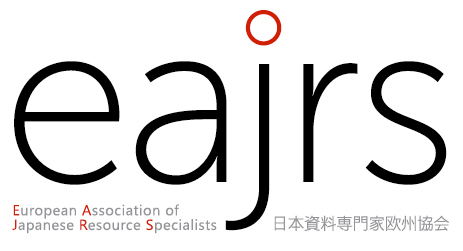![]() Ōi Masao
Ōi Masao
National Institutes for the Humanities (NIHU) / National Museum of Japanese History. Specially Appointed Associate Professor
日本の人文学研究及び関連資料に研究者の「語り」を付与し、社会と未来に繋ぐ、DH教育講座とPodcast LODの開発
日本においてデジタル・ヒューマニティズ(DH)への注目が高まっており、DHに関する人材育成のための教育コンテンツへの期待が寄せられている。しかし日本では、組織単位でDH教育が可能な機関は稀有である。そのため、カリキュラムの蓄積もなく、体系立ててDH教育を行うことが難しい。また、人材育成の前提となるDHの魅力や可能性について知る機会が少ないという課題もある。
そこで人間文化研究機構は、人文学研究及び関連資料に研究者の「語り」を付与し、それらを社会と未来に繋ぐ、「DH教育講座」と「DH Podcast & LOD」を開発している。
「DH教育講座」では、動画コンテンツを制作し、DHに対して心理的バリアを感じている学生や若手研究者、新しくDH研究を始めたいシニア研究者に興味を持ってもらい、楽しくDHを実践したくなるようなモチベーション喚起の役割を持たせている。また、これまで研究者が暗黙知的に行なってきた実践を、再現可能で汎用性のある知識として共有することも目指している。
「DH Podcast & LOD」では、研究資料を話のトリガーとしてインタビューを行い、研究者の語りと関連資料とを紐付けるPodcastコンテンツを制作している。また、それらのデータをResource Description Framework(RDF)を用いてLinked Open Data化している。
今後はこれらのコンテンツをEAJRSコミュニティのコンテンツや情報と機械可読でシームレスな接続を行い、日本資料に関する研究を国際的・共創的に進展させる連携のあり方を検討していきたい。
Development of DH educational video lectures and Podcast LOD:Connecting Japanese humanities research and related resources to society and the future providing researchers' "narratives"
With increasing attention to digital humanities (DH) in Japan, there are high expectations for educational content for human resource development related to DH. In Japan, however, institutions capable of providing DH education on an organizational basis are rare. As a result, there is no accumulated curriculum, making it difficult to conduct DH education in a systematic method. There are also few opportunities to learn about the attractiveness and potential of DH, which is a necessary prerequisite for human resource development.
To address these issues, the National Institutes for the Humanities is developing the "DH Lecture Program" and "DH Podcast & LOD," which will provide researchers' "narratives" on humanities research and related resources, and connect them to society and the future.
The "DH Lecture Program" produces video content to attract students and young researchers and senior researchers who feel mental barriers to DH and who want to start DH research, and to motivate them to practice DH with enjoyment. It also aims to share knowledge that is versatile and reproducible, and to share practices that have been implicitly practiced by researchers until now.
In "DH Podcast & LOD," interviews are conducted using research resources as story triggers, and podcast content is produced to link researchers' narratives with related resources. In addition, they are converting these data into Linked Open Data using the Resource Description Framework (RDF).
In the future, we would like to connect these data with the contents and information of the EAJRS community in a machine-readable and seamless format, and to consider ways of collaborating to advance research on Japanese resources in an international and co-creative framework.
